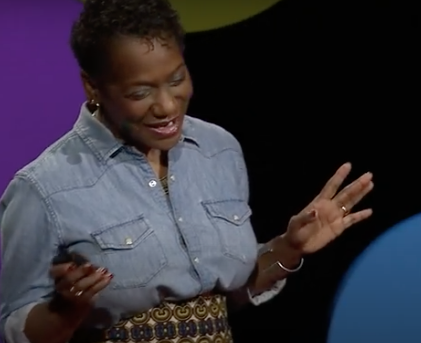Speechwriter, Your Client Is a Great Big Fourth-Grader
February 12, 2024
A schoolteacher taught your client to think of speeches as rote recitations of phony convictions, when your client was nine. The reeducation is up to you, I'm afraid.
Every year at the Professional Speechwriters Association’s Speechwriting School, the faculty gets asked:
How do I animate and effervesce my wooden, flat speaker?
Bring in a speaking coach, we say.
We are sick of saying that.
Speaking coaches can polish a rough speaker, but teaching a stiff speaker to act animated is like tying ropes to the arms and legs of a corpse.
Speakers are stiff because they are scared. And they are scared because they should be scared. For they have permanently stolen precious time from the lives of many human souls, and they know full well they don’t have anything to say that is worth the rearrangement of all these people’s schedules. But they have to say it anyway.
Fear and public speaking have gone hand in hand since the first fourth-grade teacher forced the first fourth-grader to choose from a list of five weary topics on which to give a speech to the class. And the fourth-grader felt like a fraud because he or she was made to be a fraud, compelled to pretend he or she had a genuine, studied, heartfelt, unique and useful opinion about “How does pollution affect society?” Or was it, “Are zoos good or bad for animals?”
And so the fourth-grader stood, shame-faced but brave, in front of classmates with whom he or she had exchanged fart jokes earlier that very morning, and pretended to be an authority on the benefits and drawbacks of human cloning (while the classmates, with mixed success, pretended to care). And said the expected things for the required amount of time and sat down and hoped that the next such assignment would be preceded by death.
And that’s pretty much exactly how public speaking went down for the fourth-grader, as he or she passed through junior high, high school and college, where the phony passion was applied to mouthing rote arguments for or against euthanasia, lowering the drinking age and the legalization of drugs.
Then a merciful decade or two passed—during the fourth-grader’s early work life, when most of the speeches were being given by the elders—and the fourth-grader’s oratorical participation consisted mostly of pretending to be interested in other speakers who were pretending to be interesting.
But then one day the fourth-grader became a manager. And soon an executive. And then a senior executive. And finally the call came: Would the fourth-grader honor a faceless audience by appearing at a prestigious leadership forum and delivering a speech on an unspecified topic?
That’s when the fourth-grader became your client. And you wonder why your client is elusive and would appear to prefer to focus on any aspect of her work rather than the speech that’s coming up. Don’t be surprised! Your client, when it comes to public speaking is still a fourth-grader! And do you know who you are? In the fourth-grader’s mind, you are the teacher, who is trying to get the fourth-grader to choose one of the five weary topics that you have suggested!
Long before the fourth-grader understood his or her own mind well enough to have anything genuine to say that could be sustained over more than a single minute of oratory, she had utterly decoupled public speaking from true candor and intimate communication. So if you are to rejoin these two concepts in your fourth-grader’s fully grown (and thus half-ossified) mind, you will have a hell of a job ahead of you.
You have to ascertain something true and deep about what motivated the speaker to climb all the way from the fourth grade to the position of CEO of your company—and find the intersection between that thing, and what this audience might possibly want to hear. Good luck farming that out to ChatGPT.
And you must come up with a speech that’s outside the five suggested topics—a speech that feels so uniquely of the speaker that suddenly your great big fourth-grader isn’t so focused on the PowerPoint deck. Suddenly your great big fourth-grader is up for trying it without a lectern. Suddenly your great big fourth-grader is laughing on stage, and wondering aloud whether you should maybe be videotaping this speech, to send to all the employees.
Because she suddenly realizes: She can’t remember giving a speech that sounds so much like herself. (Because she never has.)




